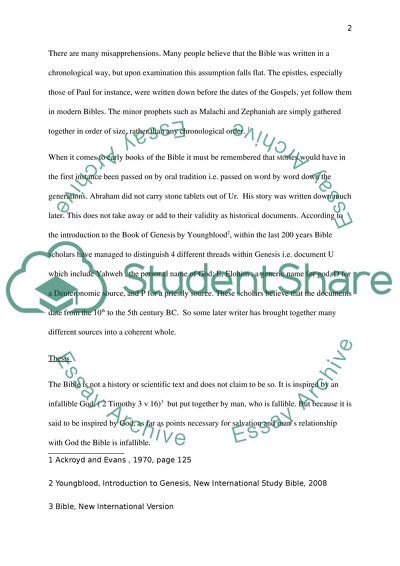Cite this document
(“Inerrancy and Infallibility of the Bible Essay Example | Topics and Well Written Essays - 3500 words”, n.d.)
Retrieved de https://studentshare.org/religion-and-theology/1391903-inerrancy-and-infallibility-of-scripture
Retrieved de https://studentshare.org/religion-and-theology/1391903-inerrancy-and-infallibility-of-scripture
(Inerrancy and Infallibility of the Bible Essay Example | Topics and Well Written Essays - 3500 Words)
https://studentshare.org/religion-and-theology/1391903-inerrancy-and-infallibility-of-scripture.
https://studentshare.org/religion-and-theology/1391903-inerrancy-and-infallibility-of-scripture.
“Inerrancy and Infallibility of the Bible Essay Example | Topics and Well Written Essays - 3500 Words”, n.d. https://studentshare.org/religion-and-theology/1391903-inerrancy-and-infallibility-of-scripture.


